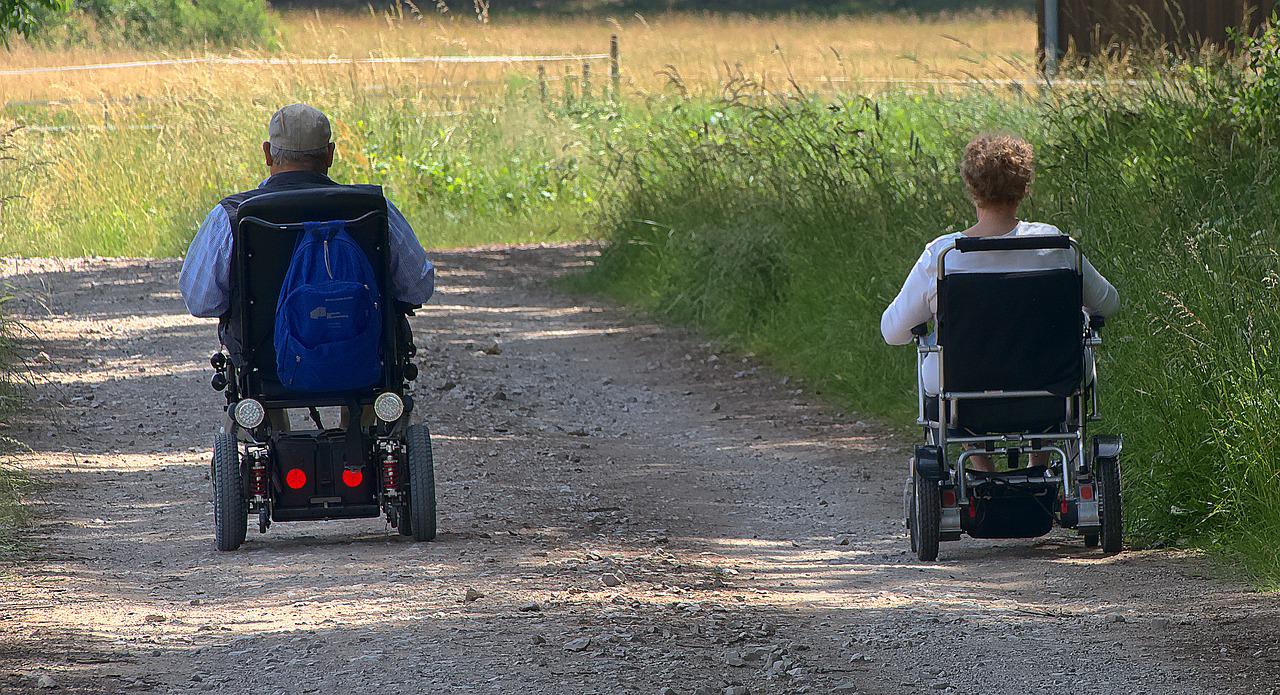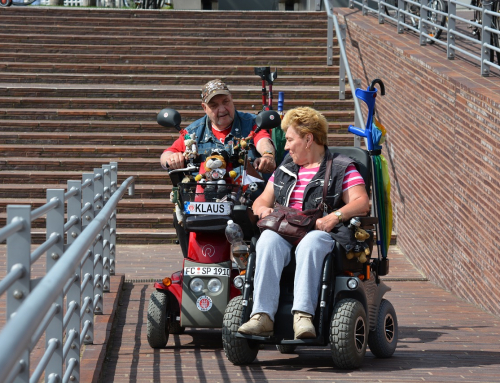A mobility scooter is an electric vehicle designed for persons with mobility problems as a mode of transport. Owning a mobility scooter can help increase independency, and aid in doing day to day errands.
There are several models of mobility scooters, however, they all have similar features; bike-style steering to direct the wheels, large padded upright seats and simple controls. It is important to note that choosing to have a mobility scooter is a lifestyle choice as well as a medical device, therefore it is important to choose the appropriate style to suit your requirements.
Types of Mobility Scooters
Mobility scooters mainly come in three different types:
- Class 2 scooters: these can be driven in urban areas, such as on pavements and in shopping areas, having a speed of up to 6km per hour.
- Boot or travel scooters: these can be folded and carried in the boot of a car. Also considered as class 2 scooters, and are ideal for those persons who can drive but still require mobility aids. Bear in mind that these scooters are heavy to carry.
- Class 3 scooters: can be driven on roads and pavements, although not exceeding the 12km per hour mark when on the road. Usually bigger in size and with longer battery life, these are suitable for longer journeys and areas where there are inclined surfaces. The appearance is just like a mini car, with front and rear lights, indicators, hazard lights, a rear-view mirror, brakes and a horn. The ride will be more comfortable than the smaller scooters.
How will I know which is the best scooter for me?
These questions might help you make the right decision:
- – Where am I going to use this mobility scooter the most?
- – How often do I plan to use the scooter?
- – How will I benefit the most from this scooter?
Other points to consider are:
- The types of journeys you plan to make – long or short, mostly to supermarkets, on plain terrain or uphill journeys?
- Where you will store your scooter – it is best to store the scooter in a dry and secure place and where it can be charged when not in use. Consider also the need for ramps to take the scooter in and out of storage.
- Your weight and size – the scooter purchased should be able to function well with your weight and body type.
- Your budget – the larger the scooter, the higher the price and maintenance costs
Contact us today at Unicare for a friendly and professional advice and support when choosing your own mobility scooter.






